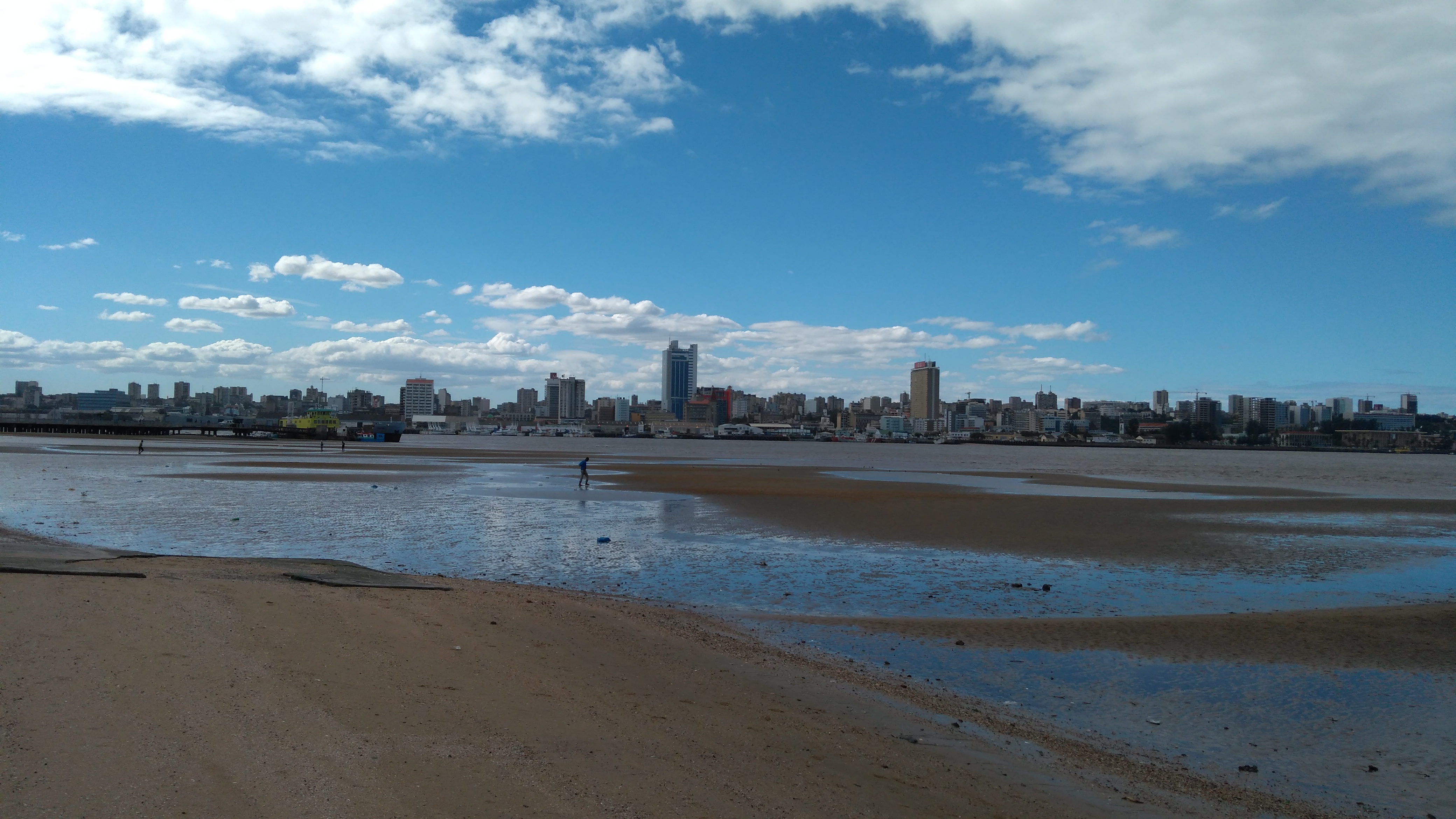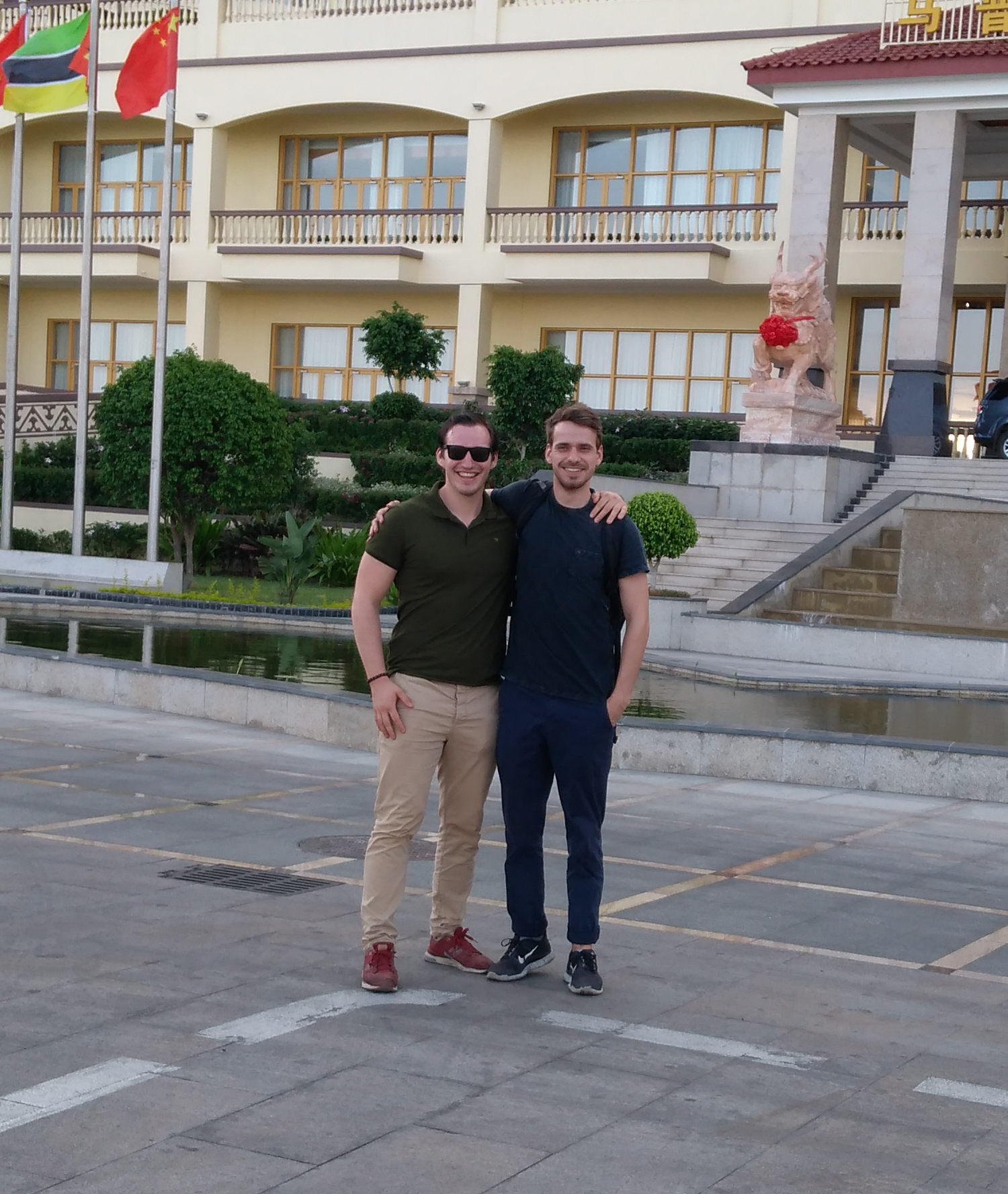Water reclamation Mozambique
In the spring of 2017 we, Jelle Epema and Stijn Dijsselbloem students from the TU Delft, went to Mozambique to work on our BSc thesis on wastewater treatment. We stayed for a period of two months, from the beginning of April to the start of June.
Background
As people have written on this website several times before, the existing WWTP is not operating well (see Irene’s work for more information) although things are changing and works at the plant have started. These include a wall and a gate that allow controlling the accesses and repaving of the roads in the plant. In the near future the Municipality of will also start the work of de-sludging the ponds.
The main objective of our work was designing a system that would allow safe water reclamation for irrigation at Infulene, following the guidelines of WHO. We also wanted to design a system that would keep as much as possible the existing infrastructure. Thus, we went with a combination of a UASB reactor to replace the existing anaerobic ponds and, as polishing step, the introduction of baffles in the existing facultative ponds. Ok, so let’s explain what we discovered.
UASB
From this part of the work we concluded that firstly, that a UASB reactor is a robust treatment method for wastewater. However, an Infulene, it is not only wastewater that needs to be treated: there’s also faecal sludge (FS) being transported by truck to the plant. Applying a UASB reactor as the only treatment would not suffice and it became evident that the UASB reactor should be combined with FS drying beds. The final configuration consisted of four UASB reactors, with the remainder of the space used for the drying beds. With this configuration the polishing step would not get overloaded. It was also concluded that the BOD concentrations were lowered to acceptable levels for depositing onto flowing waterbodies
UASB
From this part of the work we concluded that firstly, that a UASB reactor is a robust treatment method for wastewater. However, an Infulene, it is not only wastewater that needs to be treated: there’s also faecal sludge (FS) being transported by truck to the plant. Applying a UASB reactor as the only treatment would not suffice and it became evident that the UASB reactor should be combined with FS drying beds. The final configuration consisted of four UASB reactors, with the remainder of the space used for the drying beds. With this configuration the polishing step would not get overloaded. It was also concluded that the BOD concentrations were lowered to acceptable levels for depositing onto flowing waterbodies
Polishing step
For this step, various systems were analysed and compared based on the criteria that were highly relevant for the Maputo situation. These included simplicity, cost and fecal coliform removal efficiency. Polishing ponds were considered the best system for this situation. Based on literature models, expected fecal coliform removal efficiencies were calculated. For optimal configuration, two possible adjustments to the existing ponds were considered: heightening of the bottom to make the pond shallower and introducing baffles that subdivide the pond into multiple channels. For both adjustments, removal efficiencies increased. For the best results a combination of both should be implemented. When using this combination, around 5000 m3/day could be treated sufficient for unrestricted agricultural use. When the full inflow of around 15.000 m3/day must be treated, 2 log removal could be obtained, which is not sufficient according to WHO guidelines.
Conclusions
A combination of a UASB and baffled ponds would reach removal efficiencies that would allow unrestricted irrigation. Although we did not quantify the risk associated with current reuse practices, these modifications would certainly increase the safety for farmers using the effluent water of Infulene WWTP.
Overall experience
Traveling to Mozambique was a great adventure. The Mozambican people are incredibly friendly and welcoming. The country itself has some of the most beautiful beaches we had ever seen. Outside of our project we went snorkeling, hung out at local bars and ate Mozambican food with our new Mozambican friends. They even invited us to partake in their weekly football competition. Overall it was a great experience which we highly recommend to every student thinking about going.
Jelle Epema and Stijn Dijsselbloem

